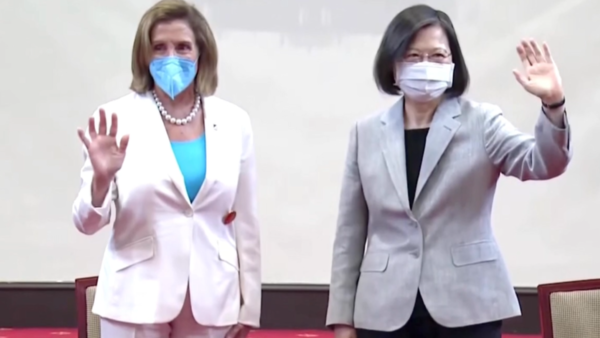Pelosi’s defiant Taiwan trip casts shadow on US’ one-China policy

Nancy Pelosi, the speaker of the US House of Representatives, left Taiwan after an unusual stopover amid Beijing’s wrath, during which she put doubt on the US one-China policy by promising “ironclad support for Taiwan’s democracy, especially in terms of security and stability.”
The US Congresswoman left Taipei following a visit that upended global geopolitics under the watchful eye of the US military, even as China promised repercussions and started taking steps to punish Taiwan with what the Taiwanese defence ministry referred to as a “maritime and aerial embargo.”
Our meetings with Taiwan’s leadership have helped to advance our common objectives, particularly the advancement of a free and open Indo-Pacific region, and to reaffirm our support for our partner. Before leaving Taiwan, Pelosi, the first female speaker in US history, tweeted, “America’s solidarity with the 23 million people of Taiwan is more important today than ever, as the world faces a choice between autocracy and democracy.”
This tweet was a dig at authoritarian China and its claims that Taiwan is not a separate country but one of its provinces. A nationalist and the first female president of Taiwan, Tsai Ing-wen, published images of her meeting with Pelosi in a separate tweet. She said, “It’s a joy to meet with [Speaker Pelosi] and appreciate her lifelong support for Taiwan.”
Your visit, Tsai said, “not only represents strong US legislative support for bilateral ties, but it also sends a message to the world that democracies stand together in the face of common difficulties.” Pelosi’s contentious trip raised serious doubts about the strategic ambiguity Washington has long employed: one that balances a one-China policy while still promising to assist Taiwan’s security, as outlined in the Taiwan Defense Act, if Beijing tries to annex the island by force.
The 82-year-old Pelosi, a mother of five and the grandmother of nine children, blatantly defied President Biden’s advice to cancel her visit even as Beijing erupted in rage and called US Ambassador to China Nick Burns in the middle of the night to voice its displeasure.
Washington made an effort to calm Pelosi’s irritation by warning Beijing not to start a problem because a House Speaker had done so before, not to mention that several US congressmen had visited Taiwan over the years.
Speaker Newt Gingrich’s visit, however, took place in 1997, which is 25 years ago, at a time when the world was very different. China was a small Asian power eager for friendly relations with Washington, and the US, which was enjoying a unipolar world following the Cold War, was eager to reciprocate.
Washington made an effort to calm Pelosi’s irritation by warning Beijing not to start a problem because a House Speaker had done so before, not to mention that several US congressmen had visited Taiwan over the years. Speaker Newt Gingrich’s visit, however, took place in 1997, which is 25 years ago, at a time when the world was very different. China was a small Asian power eager for friendly relations with Washington, and the US, which was enjoying a unipolar world following the Cold War, was eager to reciprocate.
Even though much has changed since then, Pelosi added a gender perspective to China’s outrage over her visit by noting with Tsai that “They (Beijing) didn’t say anything when the guys arrived.” In April of this year, Taiwan was visited by US senators: Lindsey Graham, Bob Menendez, Richard Burr, Ben Sasse, Rob Portman, and Ronny Jackson.
Pelosi is unique, though Her lengthy years of action on the China front, including her closeness to the Dalai Lama, whom she sought out during a 2008 trip to India when she visited Dharamsala, culminated in her visit. This advocacy has irritated Beijing.
She has honored the Tibetan leader on several occasions while serving as a member and House Speaker, collaborating with actors Richard Gere and Uma Thurman, among others, to bring attention to the Tibet problem. Her congressional district in San Francisco has a majority of Taiwanese/Tibetan nationalists and Chinese dissidents (32% Asian, 44% White).
When a Congressional delegation visited China in 1991, they displayed a pro-democracy flag in Tiananmen Square, the precise location where Beijing wanted to smash it. This angered Beijing very early in her congressional tenure.
Chinese authorities rushed her out of there, but her opposition to communist China escalated to the point that she even questioned Bill Clinton’s trade accommodation and outreach, which some experts today claim were the catalyst for America’s economic downfall.
Due to the understanding and remorse of that event and everything that followed, Republican leader Mitch McConnell and 25 GOP senators made a joint statement on Tuesday complimenting Pelosi’s trip to Taiwan, despite the present acrimonious and polarising politics in Washington.




